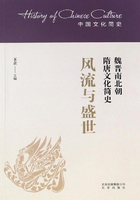If £500 of variable capital produce a surplus-value of £500, then £5,000 produce ten times £500, or £5,000 in surplus-value.
But the advanced variable capital amounts to £500. The ratio of the total surplus-value produced during one year to the sum of value of the advanced variable capital is what we call the annual rate of surplus-value.
In the case at hand it is 5,000 to 500 or 1,000%. If we analyse this rate more closely, we find that it is equal to the rate of surplus-value produced by the advanced variable capital during one period of turnover, multiplied by the number of turnovers of the variable capital (which coincides with the number of turnovers of the entire circulating capital).
The variable capital advanced in the case before us for one period of turnover is £500. The surplus-value produced during this period is likewise £500. The rate of surplus-value for one period of turnover is therefore 500s/500v or 100%. This 100%, multiplied by 10, the number of turnovers in one year, makes 5,000s/500v, or 1,000%.
That refers to the annual rate of surplus-value. As for the amount of surplus-value obtained during a specified period of turnover, it is equal to the value of the variable capital advanced during this period, of £500 in the present case, multiplied by the rate of surplus-value, in the present case therefore 500 times 100/100, or 500 times 1, or £500.
if the advanced variable capital were £1,500, then with the same rate of the surplus-value the amount of surplus-value would be 1,500 times 100/100, or £1,500.
We shall apply the term capital A to the variable capital of £500, which is turned over ten times per year, producing an annual surplus-value of £5,00 for which, therefore, the yearly rate of surplus-value is 1,000%.
Now let us assume that another variable capital, B, of £5,000, is advanced for one whole year (i.e., here for 50 weeks), so that it is turned over only once a year. We assume furthermore that at the end of the year the product is paid for on the same day that it is finished, so that the money-capital, into which it is converted, returns on the same day. The circulation period is then zero, the period of turnover equals the working period, namely, one year. As in the preceding case there is to be found in the labour-process each week a variable capital of £100, or of £5,000 in 50 weeks. Let the rate of surplus-value be the same, or 100%, i.e., let one half of the working-day of the same length consist of surplus-labour. If we consider 5 weeks, the invested variable capital is £500, the rate of surplus-value 100% and therefore the amount of surplus-value produced in 5 weeks £500. The quantity of labour-power here exploited, and the intensity of its exploitation, are assumed to be exactly the same as those of capital A.
Each week the invested variable capital of £100 produces a surplus-value of £100, hence in 50 weeks the invested capital of 50 x 100 = £5,000 produces a surplus-value of £5,000. The amount of surplus-value produced annually is the same as in the previous case, £5,000, but the yearly rate of surplus-value is entirely different.
It is equal to the surplus-value produced in one year divided by the advanced variable capital: 5,000s/5,500v, or 100%, while in the case of capital A it was 1,000%.
In the case of both capitals A and B, we have invested a variable capital of £100 a week. The degree of self-expansion, or the rate of surplus-value, is likewise the same, 100%, and so is the magnitude of the variable capital, £100. The same quantity of labour-power is exploited, the volume and degree of exploitation are equal in both cases, the working-days are the same and equally divided into necessary labour and surplus-labour. The amount of variable capital employed in the course of the year is £5,000 in either case; it sets the same amount of labour in motion, and extracts the same amount of surplus-value, £5,000, from the labour-power set in motion by these two equal capitals. Nevertheless there is a difference of 900% in the annual rate of surplus-value of the two capitals A and B.
This phenomenon creates the impression, at all events, that the rate of surplus-value depends not only on the quantity and intensity of exploitation of the labour-power set in motion by the variable capital, but besides on inexplicable influences arising from the process of circulation.
And it has indeed been so interpreted, and has -- if not in this its pure form, then at least in its more complicated and disguised form, that of the annual rate of profit -- completely routed the Ricardian school since the beginning of the twenties.
The strangeness of this phenomenon disappears at once when we place capitals A and B in exactly the same conditions, not only seemingly but actually. These equal conditions exist only when the variable capital B in its entire volume is expended for the payment of labour-power in the same period of time as capital A.
In that case the £5,000 of capital B are invested for 5weeks, £1.000 per week makes an investment of £50,000 per year.
The surplus-value is then likewise £50,000, according to our premises.















